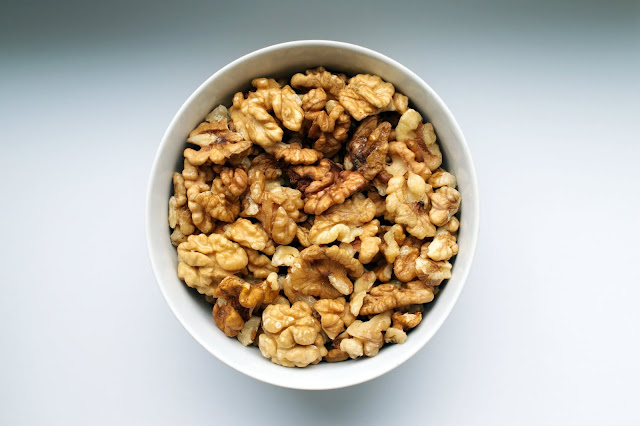There are a lot of things you can do to help keep the heart safe and free from disease.
You should schedule an annual check-up, exercise regularly, stop smoking or take action to reduce your life's stress level.
Both of these things will affect heart safety positively. Still, one of the best improvements in lifestyle that will help your heart is to watch what you eat.
Here are 15 best foods that you must eat to maximize your heart health.
1. Chickpeas
2. Olive Oil
Olive oil increases cardiovascular risk, most likely by reducing LDL cholesterol and increasing HDL cholesterol levels, and is an important component of a Mediterranean diet. Use olive oil for cooking or make an excellent dip for whole grain bread by putting a bit of olive oil into a small bowl and adding a little balsamic vinegar and a pinch of oregano.
3. Red Wine
Red wine includes flavonoid forms called catechins, and antioxidant resveratrol. Flavonoids may help keep the blood vessels open, and can help prevent blood clots. Resveratrol has shown to have heart-protecting properties in the laboratory.
Take a glass of wine with dinner, or make a wine spritzer-blend wine with sparkling water-to minimize calories while still enjoying other benefits.
Make sure to do it in moderation, of course. You can also totally miss red wine and a drink dealcoholized version, as it tends to provide many of the same health benefits.
Take a glass of wine with dinner, or make a wine spritzer-blend wine with sparkling water-to minimize calories while still enjoying other benefits.
Make sure to do it in moderation, of course. You can also totally miss red wine and a drink dealcoholized version, as it tends to provide many of the same health benefits.
4. Green Leafy Vegetables
Leafy greens are filled with compounds that support your vascular system and heart. They are also high in nutrients, which can minimize bad cholesterol and decrease heart disease. Leafy greens have a nice taste and low calories. Using new spinach leaves as a spinach salad, or serve as side dish Swiss chard or kale. Chew on new broccoli at snack time, with a veggie dip.
5. Tofu
Tofu is a good source of protein. This one is vegetarian. And it's full of nutrients from the heart, including niacin, folate, calcium, magnesium, and potassium.
Tofu is often referred to as the "bean curd," because it is made of pressed soy curd. Preparation is simple, and can be part of nearly any meal.
Slice thinly firm tofu, marinate and grill for several hours, or add to your preferred veggie stir-fry. Take a tofu, lettuce, and tomato sandwich for whole grain bread, use in pasta dishes instead of meats, and add vegetables for added protein in slices or cubes.
6. Brown Rice
Not only is brown rice delicious, it is part of a balanced diet for the heart too. Brown rice contains the vitamins, magnesium, and fiber B-complex.
To just about every dish you can add brown rice and you won't get wrong. Microwaveable brown rice with some chopped veggies allows a fast and simple lunch. Combine it with some black beans or tofu, stir-fry, add to soups, or try it cold mixed in a salad with avocado.
7. Tomatoes
Tomatoes are filled with vitamins, and the lycopene is abundant in concentrated tomato products. Adding lycopene to your diet will help protect your heart, particularly if your current diet doesn't offer you all the antioxidants you need. Add a few thick slices of tomatoes to salads and sandwiches, or spoon over whole-wheat pasta with a fresh tomato sauce.
8. Carrots
Carrots are possibly best known for being a great carotene source. We have plenty of the well-known beta-carotene nutrient, but even carrots are a great source of both alpha and gamma carotenes (carotenoids).
Carrots make for a perfect snack for children. Chopped up, they add texture to salads, and even sliced carrots can be sneaked into other recipes, including tomato sauce, muffins, and pasta.
9. Walnuts
Some nuts contain monounsaturated fats, vitamin E, and other natural substances that help keep blood pressure and cholesterol levels in check. Walnuts are unique, since they are also a great source of omega-3 fatty acids based on plants.
Walnuts and a slice of fruit make a perfect snack. For breakfast, scatter some sliced walnuts together with a little honey or blueberries on top of a bowl of warm oatmeal.
Walnuts and a slice of fruit make a perfect snack. For breakfast, scatter some sliced walnuts together with a little honey or blueberries on top of a bowl of warm oatmeal.
10. Red Apples
Apples were related to lower the risk of cardiac disease. That's because they contain a lot of various compounds which improve various heart health factors.
Apples contain soluble fiber, the form known for its antioxidant effects that may lower bad cholesterol, and polyphenols.
Apples come and are portable in many delicious varieties. Have an apple as a nutritious snack, with a handful of walnuts or almonds or add sliced apple to your salads.












birinden güzel şahane tatlar siteyi gezince inanın insanın iştahı kabarıyor :))
ReplyDeletehttps://www.bursasevdam.com/sayfama beklerim iyi yayınlar
Asthma is a lung disease this condition persons airways become inflamed, narrow, swell. The most common asthma symptoms Shortness of breath, wheezing, and cold.For the more information= how asthma is diagnosed
ReplyDeletePost a Comment